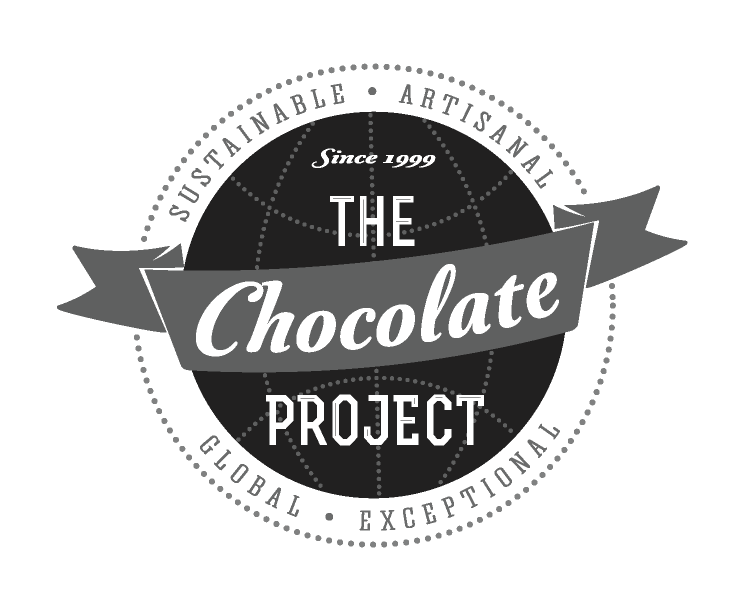As the global pandemic shows no sign of abating, we thought this might be a good time to examine what effects Covid-19 is having on the world of fine chocolate.
We saw the earliest immediate effect back in March as chocolate makers and retailers worldwide closed their shops. In some cases they were mandated by government to do so and in others they closed to protect their staff and customers while figuring out how to safely conduct their operations. Luckily, things like masks and gloves were already standard equipment in most chocolate making facilities so adopting a PPE regime wasn't that much of an adjustment. Tougher for many makers was adjusting to the loss of their retail outlets. Chocolate makers who relied on brick and mortar stores for a large percentage of their sales suffered dramatically. Many retail stores never did reopen or, if they did open again, greatly reduced their restocking orders. Brands who already did a large percentage of their sales online fared better, but for quite a few businesses, perhaps already marginal before the pandemic hit, it was too much to bear. As with small business owners everywhere, chocolate makers who are dealing with an uncertain future, looming bills and little hope of hitting sales targets this year or next may see closing as their only option. A recent poll of craft chocolate businesses suggests that 20% of them won't survive a prolonged virus-induced downturn.
The picture on the supply side is not quite as bleak, although cacao growing countries, especially in Latin America, are among the hardest hit with Covid-19. In the rural areas where cacao harvesting and fermentation takes place infection rates are far lower than in the big cities, but medical care is basic out there and not equipped to deal with anything like a full-blown respiratory failure. When someone in a village does get sick, physical distancing becomes a challenge as their lifestyle is so tied to communal living. Travel to a quality hospital involves a long car ride and there is no certainty that they will get admitted or be able to afford the care they need. Thus many who are infected in cacao growing areas just hunker down at home and hope for the best. Fatalities don't get reported or counted among the official cases so we really have no idea how widespread the virus is in the more remote parts of South and Central America.
And yet the harvests continue. There is little that farmers can do except bring in the crops and hope to find a buyer, as they have always done. Those with long term contracts with brokers and bean wholesalers are seeing those agreements tested now as there is no shortage of quality cacao out there, but perhaps soon, a shortage of buyers for it. Those who are part of Co-ops are now facing the challenge of selling beans to chocolate makers who already have some of last years crop still in storage and are perhaps thinking of cutting back their orders this year as sales are so uncertain. It is a vicious circle as supply begins to exceed demand which will likely push prices downward, and that is a bad thing for farmers and cacao producers everywhere.
So how can we help? As the largest buyer of craft chocolate in Canada, The Chocolate Project has taken steps to assist the chocolate makers we represent by purchasing aggressively and stocking as much of their products as we have space for. Far more bars than we would normally buy at this time of year. In some cases we have paid in advance for bars not even created yet, to help with cash flow issues. We are also reaching out to bean growers and farmers who might be thinking of starting their own bar manufacturing operation as an additional revenue stream to give them feedback, tasting notes and packaging ideas. We've already committed to carrying some of these new fledgling operations in our shop. The bean-to-bar chocolate community is a very close-knit one and we all share ideas, suggestions, contacts and crafting assistance more often than you might think. It is a global network of like-minded passionate artists who just want to see everyone enjoying the finest chocolate possible and to ensure that those who grow and harvest it are compensated fairly and ethically. Over the past two decades we have built a wonderful infrastructure around this ideal with the hope that should something unforseen arise (not that anyone was expecting a global pandemic) we will all be resourceful enough to survive it.
Two articles for further reading courtesy of the Fine Cacao and Chocolate Institute...
Lots of additional links in the second one if you really want to get deeper into this.
https://readcacao.com/news/the-impact-of-covid-19-on-small-chocolate-businesses/
https://revista.drclas.harvard.edu/book/chocolate-time-covid-19%C2%A0
